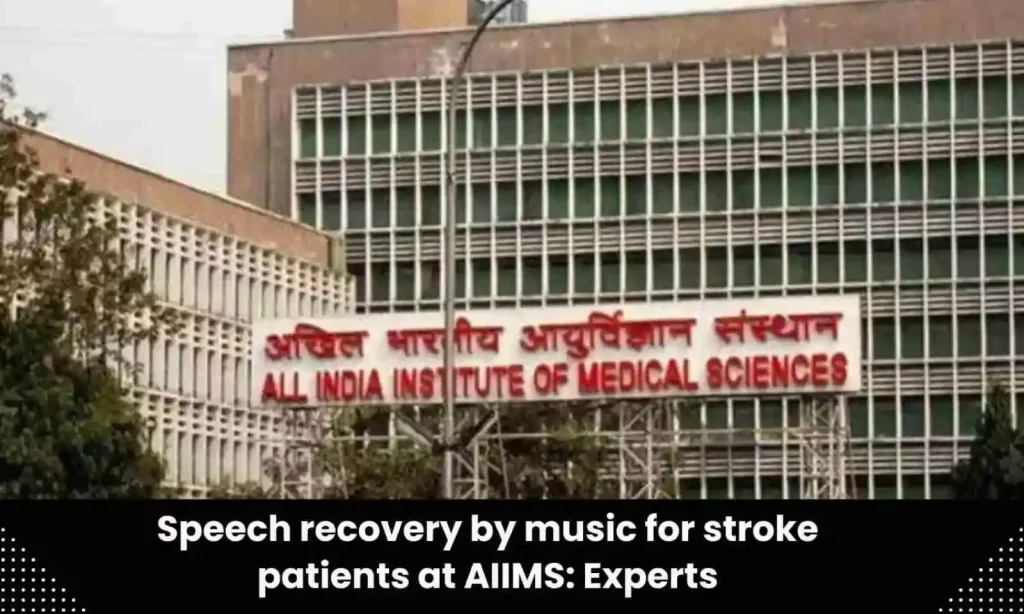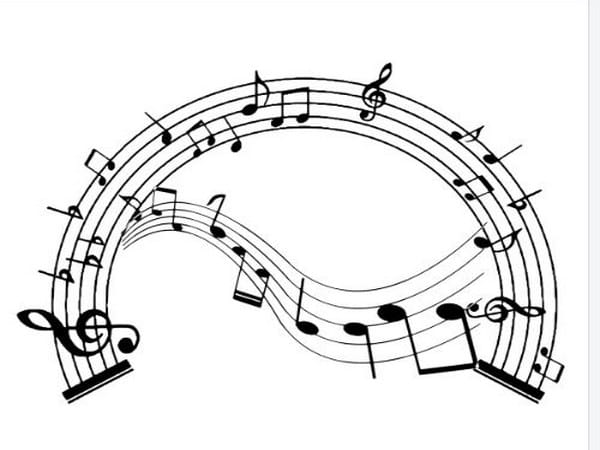With Innovative Music Therapy Modules: In a groundbreaking development, the All India Institute of Medical Sciences (AIIMS) in Delhi is set to introduce music therapy modules for individuals who have lost their ability to speak due to brain strokes. This marks a significant stride in stroke rehabilitation, utilizing the therapeutic power of music to enhance recovery.

AIIMS Delhi has initiated a novel therapy for individuals with impaired speech following a brain stroke. This therapy involves the use of specially designed music therapy modules, developed in collaboration with the Indian Institute of Technology (IIT) Delhi. A primary study has already commenced to evaluate the effectiveness of this module.
The music therapy aims to address speech impairments in patients recovering from brain strokes. AIIMS plans to integrate traditional Indian music therapy, incorporating desi tunes into the module. Patients will have the opportunity to actively participate in their treatment by selecting their favorite songs, fostering a personalized approach to rehabilitation. The therapy is expected not only to restore speech capabilities but also to expedite the overall recovery process.
Dr. Deepti Bevaa, a prominent figure at AIIMS, emphasized the challenges faced by patients post-brain stroke, where hearing and speaking abilities are compromised. Music therapy is proposed as a transformative approach to aid in their recovery. Patients will be encouraged to sing and speak through the guidance of music therapy, marking a significant milestone as India develops its first music therapy module for stroke survivors. The Neurology Department at AIIMS, with support from IIT Delhi, is actively contributing to this innovative initiative.

Statistics indicate that approximately 21 to 38 percent of individuals experience impairments after brain strokes, affecting the left hemisphere of the brain responsible for speech, comprehension, and emotional expression. Stroke survivors often struggle to utter a single word, motivating AIIMS to pioneer music therapy as a treatment method in India. While music therapy is a recognized practice abroad, this initiative introduces a tailored approach for stroke survivors in the country.
The therapy leverages the fact that the left hemisphere of stroke-affected brains becomes inactive, rendering patients unable to comprehend or express music. The active right hemisphere, however, can be stimulated through music therapy, allowing patients to understand and appreciate music. Even patients with severe impairments, such as difficulty in drinking water, are expected to benefit from this innovative therapy.
The process involves playing short musical instruments in front of patients, encouraging them to not only understand but also actively engage with the music. Pre-determined tunes, including popular Indian melodies, are incorporated, providing patients with a gradual progression from small phrases to complete sentences. Songs like ‘Raghupati Raghav Raja Ram’ and ‘Ae Mere Watan Ke Logon’ are included, known to resonate with a vast Indian audience.
The success of the therapy will be evaluated through a study involving 60 patients, with the first 30 undergoing music therapy while the remaining 30 receive conventional treatment. Results will be assessed three months later, determining the efficacy of this pioneering approach to stroke rehabilitation.
In conclusion, the integration of music therapy modules at AIIMS represents a significant leap in stroke rehabilitation, showcasing the institution’s commitment to innovative healthcare practices. This culturally relevant approach not only addresses a critical aspect of stroke recovery but also reflects the potential of blending traditional practices with modern medical interventions.”
Read more: “Eliminate LDL Cholesterol with Banyan Tree Bark Infusion: Learn the Easy Recipe